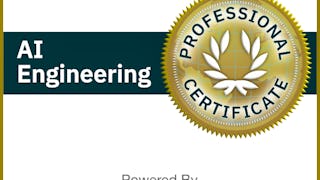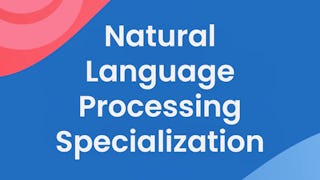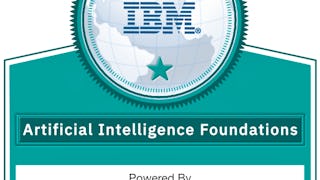Filter by
SubjectRequired
LanguageRequired
The language used throughout the course, in both instruction and assessments.
Learning ProductRequired
LevelRequired
DurationRequired
SkillsRequired
SubtitlesRequired
EducatorRequired
Explore the NET Course Catalog

Skills you'll gain: OSI Models, TCP/IP, Data Centers, Network Protocols, Network Infrastructure, Local Area Networks, General Networking, Network Architecture, Computer Networking, Network Switches, System Requirements
 Status: Free Trial
Status: Free TrialSkills you'll gain: Prompt Engineering, Large Language Modeling, PyTorch (Machine Learning Library), Supervised Learning, Feature Engineering, Generative AI, Keras (Neural Network Library), Deep Learning, Jupyter, Natural Language Processing, Reinforcement Learning, Unsupervised Learning, Generative AI Agents, Scikit Learn (Machine Learning Library), Image Analysis, Data Manipulation, Tensorflow, Python Programming, Verification And Validation, Artificial Neural Networks
 Status: Free Trial
Status: Free TrialMicrosoft
Skills you'll gain: ASP.NET, Microsoft Copilot, .NET Framework, Application Programming Interface (API), Middleware, Server Side, Restful API, C# (Programming Language), Back-End Web Development, Application Frameworks, JSON, Routing Protocols, Debugging
 Status: Free Trial
Status: Free TrialDeepLearning.AI
Skills you'll gain: Natural Language Processing, Supervised Learning, Markov Model, Text Mining, Dimensionality Reduction, Artificial Intelligence and Machine Learning (AI/ML), Artificial Neural Networks, PyTorch (Machine Learning Library), Deep Learning, Tensorflow, Machine Learning Methods, Data Processing, Feature Engineering, Machine Learning Algorithms, Artificial Intelligence, Algorithms, Keras (Neural Network Library), Linear Algebra, Data Cleansing, Probability & Statistics
 Status: Free Trial
Status: Free TrialSkills you'll gain: Prompt Engineering, Large Language Modeling, Generative AI, Artificial Intelligence, ChatGPT, Data Ethics, Artificial Intelligence and Machine Learning (AI/ML), OpenAI, Workflow Management, Deep Learning, Machine Learning, Artificial Neural Networks, Governance, Automation, Application Deployment, Business Transformation, IBM Cloud, Applied Machine Learning, Program Development, Computer Vision
 Status: Free Trial
Status: Free TrialSkills you'll gain: PyTorch (Machine Learning Library), Keras (Neural Network Library), Deep Learning, Reinforcement Learning, Unsupervised Learning, Image Analysis, Data Manipulation, Tensorflow, Verification And Validation, Generative AI, Artificial Neural Networks, Data Processing, Applied Machine Learning, Artificial Intelligence and Machine Learning (AI/ML), Computer Vision, Artificial Intelligence, Scientific Visualization, Time Series Analysis and Forecasting, Predictive Modeling, Natural Language Processing
 Status: Free Trial
Status: Free TrialDeepLearning.AI
Skills you'll gain: Generative AI, PyTorch (Machine Learning Library), Image Analysis, Deep Learning, Artificial Neural Networks, Data Ethics, Applied Machine Learning, Computer Vision, Machine Learning, Unsupervised Learning, Artificial Intelligence, Information Privacy, Performance Testing, Machine Learning Algorithms
 Status: Free Trial
Status: Free TrialSkills you'll gain: Network Protocols, Cloud Storage, General Networking, Networking Hardware, Network Troubleshooting, OSI Models, Data Storage, Cloud Services, TCP/IP, Local Area Networks, Network Architecture, Computer Networking, Command-Line Interface, System Configuration, Wireless Networks, Hardware Troubleshooting
 Status: Free Trial
Status: Free TrialSkills you'll gain: Computer Networking, Network Troubleshooting, Network Administration, TCP/IP, Network Protocols, Network Routing, Dynamic Host Configuration Protocol (DHCP), Virtual Private Networks (VPN), Network Security, Wireless Networks, Network Model, Data Integrity
 Status: NewStatus: Free Trial
Status: NewStatus: Free TrialSkills you'll gain: GitHub, Model View Controller, ASP.NET, Application Deployment, Git (Version Control System), Microsoft Azure, Cloud Applications, Software Architecture, Database Development, .NET Framework, Scalability, C# (Programming Language), Version Control, Authentications, User Interface (UI), Back-End Web Development, Bootstrap (Front-End Framework), Database Management, Database Design, Software Design
 Status: Free Trial
Status: Free TrialIESE Business School
Skills you'll gain: Financial Statement Analysis, Financial Statements, Corporate Finance, Income Statement, Accounting, Financial Market, Financial Accounting, Capital Budgeting, Operational Analysis, Accrual Accounting, Financial Modeling, Working Capital, Balance Sheet, Financial Analysis, Financial Forecasting, Generally Accepted Accounting Principles (GAAP), Financial Reporting, Financial Management, Equities, Capital Markets
 Status: Free Trial
Status: Free TrialSkills you'll gain: Reconciliation, Financial Statements, Financial Statement Analysis, Inventory Accounting, Payroll, Bookkeeping, QuickBooks (Accounting Software), Payroll Administration, Inventory Control, Payroll Processing, Income Statement, Balance Sheet, Depreciation, Fixed Asset, Payroll Tax, Property Accounting, Financial Analysis, Sales Tax, Ledgers (Accounting), Accounting
In summary, here are 10 of our most popular net courses
- Introduction to Networking: NVIDIA
- IBM AI Engineering: IBM
- Back-End Development with .NET: Microsoft
- Natural Language Processing: DeepLearning.AI
- AI Foundations for Everyone: IBM
- IBM Deep Learning with PyTorch, Keras and Tensorflow: IBM
- Generative Adversarial Networks (GANs): DeepLearning.AI
- Introduction to Networking and Storage: IBM
- The Bits and Bytes of Computer Networking: Google
- Complete ASP.NET Core and Entity Framework Development: Packt










